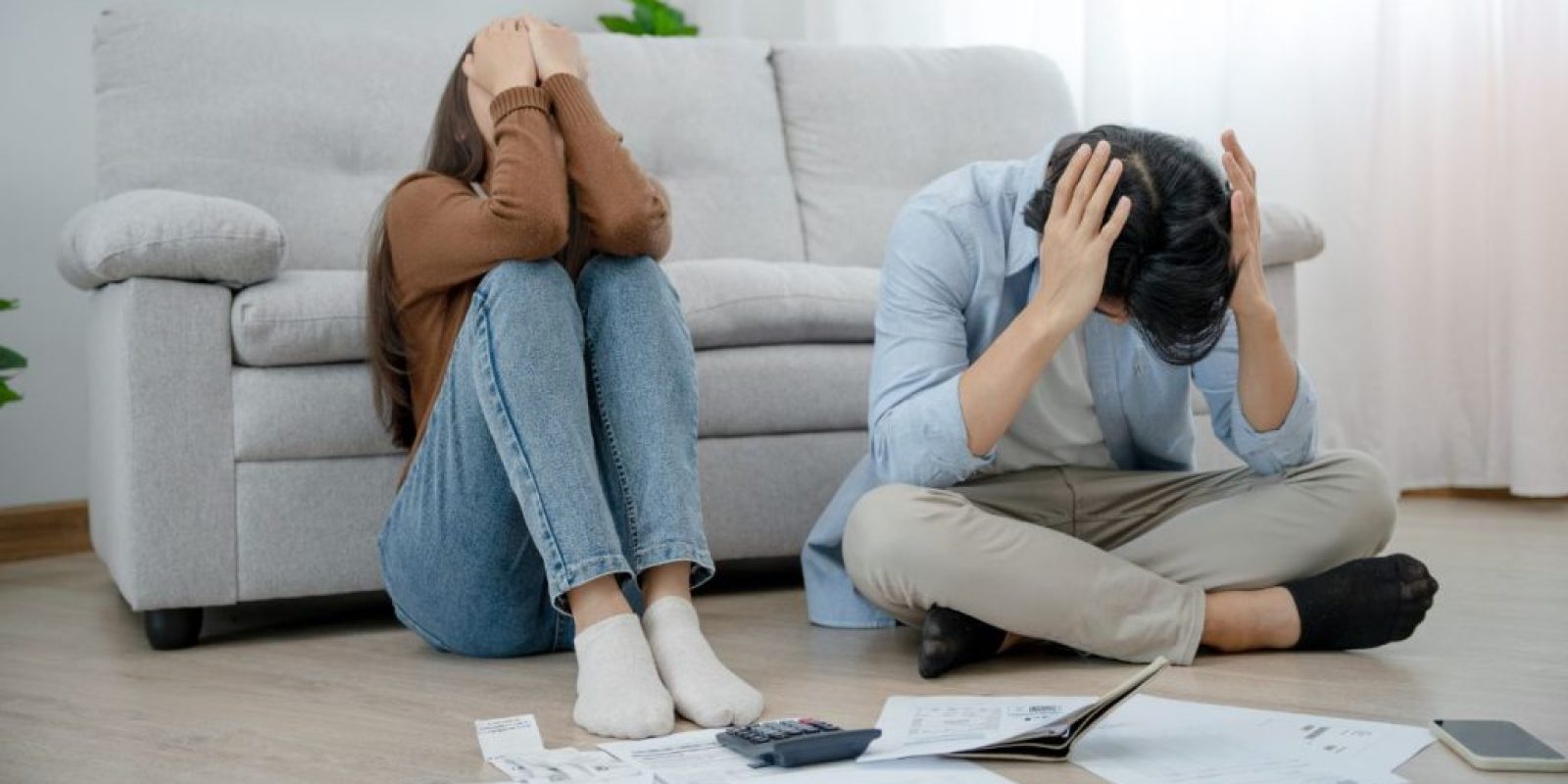Stress and anxiety are common and can really hurt your body and mind. If you feel stressed all the time, it can lead to many health issues.
These include heart problems, feeling down (depression), and getting sick more often. But there’s hope because you can learn to control and lessen stress.
How can I recover from stress and anxiety? This article will show you many ways to get better, manage stress, and be peaceful inside.
Key Takeaways
- Chronic stress can have a significant impact on your physical and mental well-being, contributing to various health problems.
- Effective techniques for recovering from stress and anxiety include lifestyle changes and coping strategies.
- By implementing these techniques, you can regain control and find inner peace, overcoming the challenges of chronic stress and anxiety.
- Adopting a holistic approach to reduce chronic stress and overcome anxiety is key to your recovery.
What are Stress and Anxiety?
Stress is our body’s way of reacting to tough situations, triggering the release of hormones like cortisol and adrenaline.
These hormones prepare us for action. However, if we are stressed for too long, it can cause health problems.
Anxiety, though, is a different story.
It’s a condition where people constantly worry, fear, and feel overly nervous.
Some stress is OK, but too much or ongoing stress, as well as anxiety, can make us feel tired and grumpy and struggle with focus and digestion.
Causes of Stress and Anxiety
Many things can lead to ongoing stress, like tough jobs, money worries, or hard relationships.
Past events, like a hard childhood, can also play a big role.
Examples of causes of anxiety include:
- Genetic factors
- Environmental factors
- Life events
- Support from others.
Often, learning to cope with stress in healthy ways can help prevent anxiety.
Symptoms of Chronic Stress
Chronic stress shows up in many ways, both physically and mentally.
Some signs include:
- Being easily annoyed
- tired
- Not hungry
- Having stomach troubles
- Trouble focusing
- Self-doubt
- Feeling nervous.
Over time, too much stress weakens your body, making you more likely to get sick.
If it doesn’t get better, it could lead to serious issues like heart disease or depression.
Lifestyle Changes for Stress Relief
1. Exercise and Physical Activity
Moving your body often can ease stress and anxiety.
Exercises like walking or yoga help your body make endorphins.
These are chemicals that make you feel good.
They also help lower stress.
Even a little exercise can make a big difference in how you feel.
2. Balanced Diet and Nutrition
Eating well is another key to managing stress.
A balanced diet with many fruits, veggies, and healthy fats does wonders.
It helps your body handle stress on a bad day.
And it keeps your brain sharp and emotions stable.
Conversely, too much junk food can add to your stress.
It can even cause other health issues.
Supplements can also help replace the nutrients you lack in your diet.
3. Minimizing Screen Time and Phone Use
Spending too much time on screens can stress you out.
All the alerts and messages can make you feel overwhelmed.
So, cutting back on screen time, especially at night, is smart.
Take breaks from technology from time to time.
It helps your brain relax and find calm.
4. Practicing Self-Care
Looking after yourself is vital for fighting stress and anxiety.
There are many things you can do that make you feel good.
Try taking a bath, reading, or doing hobbies you love.
These small things can help keep your stress in check.
Finding ways to relax and unwind is key to balancing life and work.
5. Journaling and Expressive Writing
Writing down your thoughts is a great way to handle stress.
It lets you get your feelings out without talking to anyone.
This can help lower stress and increase your self-understanding.
If you write about what stresses you, you might understand it better.
This can make you stronger and less stressed over time.
How can I recover from stress and anxiety?

1. Building a Support System
It’s important to have a strong support system when overcoming stress and anxiety.
Talking to friends and family or joining support groups can really help.
They can offer both emotional and practical advice.
This can make you feel less alone.
Also, it supports your well-being and resilience.
2. Setting Boundaries and Learning to Say No
Saying no can lower your stress.
It means not overloading yourself with commitments.
By focusing on your needs and choosing wisely, you reduce stress and make time for yourself.
It’s okay to set limits with others.
Remember, you can refuse tasks that don’t match your priorities to protect your well-being.
3. Avoiding Procrastination
Putting things off can add to your stress.
It leads to a rush to finish things at the last minute.
Staying ahead of your tasks can make you feel more relaxed and in control.
Use to-do lists, reasonable deadlines, and uninterrupted work time.
These practices stop procrastination and make you more productive.
4. Mindfulness and Meditation
Practicing mindfulness and meditation can greatly reduce stress and anxiety.
These methods help keep you focused on the present moment.
They stop you from worrying about the past or future.
Meditation can decrease stress hormones and enhance your mood.
Regularly doing these exercises can make you feel calm and clear, even in tough times.
5. Seeking Professional Help
If personal strategies aren’t helping, talking to a professional can be a good next step.
Mental health experts can offer advice tailored to you.
They help uncover the causes of your stress and suggest healthy coping methods.
For severe or long-term stress, professional help is important.
Wrapping Up
Dealing with stress and anxiety means looking at both your body and your mind.
You should change your lifestyle, care for yourself, and get expert help.
This way, you can learn how to handle stress better.
And you can start feeling well again.
Finding what helps you might not be easy, and it could take a while.
It’s important to try different things.
Be open to new ways, and don’t rush yourself.
Stay focused on taking care of your mind and body.
This includes working out, being mindful, and eating well.
These things can help with stress and anxiety.
Remember to take a holistic approach to your well-being.
Work on the physical, emotional, and thinking parts of yourself.
With time, kindness to yourself, and focusing on your health, you can overcome stress and anxiety.
And you can live a life that’s healthier and more rewarding.
FAQ
What are the key strategies for recovering from stress and anxiety?
There are several key ways to get over stress and anxiety. It’s good to exercise often and eat well. You should also reduce the time you spend looking at screens and your phone. It helps to take care of yourself, write your thoughts down, and find a good support system. Setting limits, not waiting to do things, and practicing mindfulness are all important too.
What are some effective self-care practices for managing stress and anxiety?
Self-care means doing things that make you feel good in body and mind. Taking a long bath, reading, listening to calm music, doing yoga, or following your hobbies can all help. They reduce stress and bring peace.
How can journaling help with stress and anxiety recovery?
Writing down how you feel can be very helpful. It makes you feel better, helps you think clearly, and know yourself more. Keep a journal or write regularly to understand and grow from hard times.
How can setting boundaries help with stress management?
Doing too much can stress you out. Putting yourself first and choosing what’s important helps cut stress. This gives you more time for things that make you feel good and relaxed.
How can mindfulness and meditation practices help with stress and anxiety recovery?
Mindfulness, deep breathing, and focusing on the present can calm you down and worry less. Meditating also lower stress hormones, helps you control your feelings, and improves your mood. This makes you feel stronger against stress.




